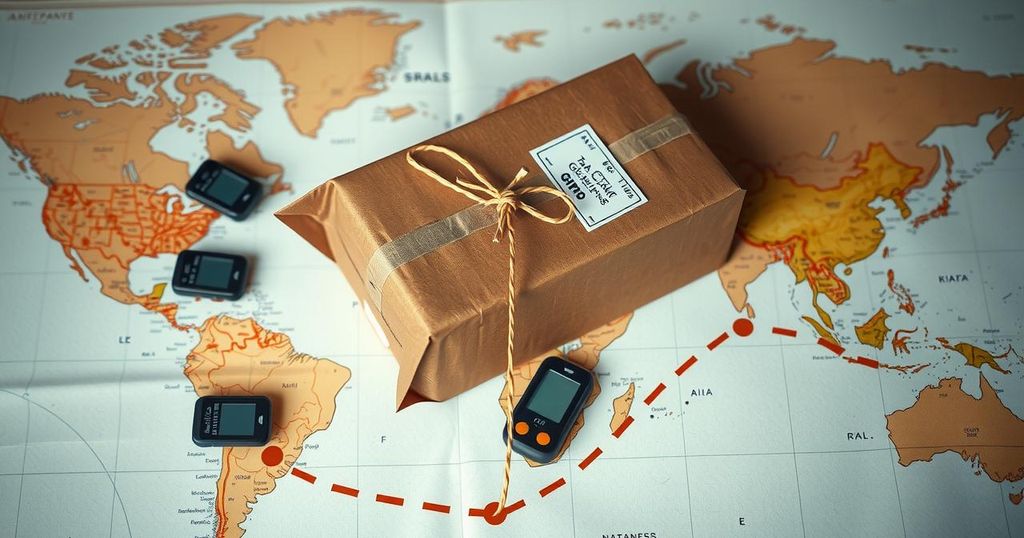Sending a Package to North Korea: A YouTuber’s Journey with AirTags

A German YouTuber, MegaLag, attempted to send packages to North Korea while tracking their journey using AirTags. After several misroutes and a month of delays, he confirmed that packages faced rejection by North Korea due to COVID-19 restrictions. Despite the failures, the AirTags successfully tracked the package locations, illuminating the difficulties of shipping to such a secretive nation and showcasing modern technology’s strengths.
In a unique experiment, a German YouTuber known as MegaLag attempted to send a package to North Korea, aiming to discover if such a feat was plausible and to track its progress. This investigation involved shipping a parcel to the German embassy in Pyongyang, equipped with an AirTag—Apple’s GPS tracking device—via DHL from Düsseldorf. The underlying question was whether the package would reach its destination and how it would navigate the complexities of delivery to such a secretive nation.
Initially, MegaLag faced significant delays as his AirTag indicated that the package had been stationary in a DHL warehouse in Frankfurt for nearly a month. Despite not receiving a prompt resolution, MegaLag proactively contacted DHL to launch an investigation, although they warned him that it could take as long as two months to resolve. In the meantime, he sent a second package to North Korea, also accompanied by an AirTag, in hopes of obtaining more swift results.
The results of the second attempt were equally disappointing. This time, the package was directed to a North Korean government commission focused on cinematography but ended up misrouted to Seoul, South Korea, where it was subsequently labeled as lost. Meanwhile, MegaLag’s first package was tracked to Beijing, far removed from its intended location in Pyongyang. Undeterred, MegaLag dispatched a third package, which also experienced misrouting and returned to Germany without his receipt. Notably, he later learned that North Korea had been rejecting all foreign packages due to COVID-19 policies, a fact that was not disclosed until after the initiation of his experiment.
Despite substantial obstacles, the AirTags showcased their efficiency. While DHL misclassified the packages as lost, the AirTags provided ongoing visibility on their locations, demonstrating their utility in tracking shipments, even amid unforeseen challenges. The primary objective of delivering a package to North Korea may not have been achieved; nonetheless, the experiment elucidated the intricacies of shipping to such a nation and highlighted the capabilities of modern tracking technology. Ultimately, it became clear that the journey and the revelations about the challenges involved were as significant as the destination itself.
In conclusion, MegaLag’s experiment sheds light on the formidable challenges of sending packages to North Korea. Despite facing numerous setbacks, the use of AirTags proved to be an effective means of tracking the packages, which were ultimately hindered by geopolitical restrictions. This endeavor not only illustrated the limitations of international shipping to North Korea but also underscored the capabilities of modern technology in navigating complex situations. While the main objective was not accomplished, the insights gained were invaluable.
Original Source: www.wecb.fm







